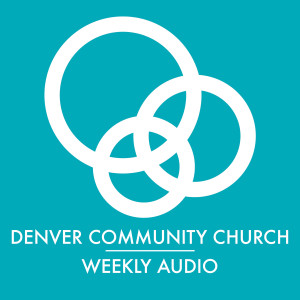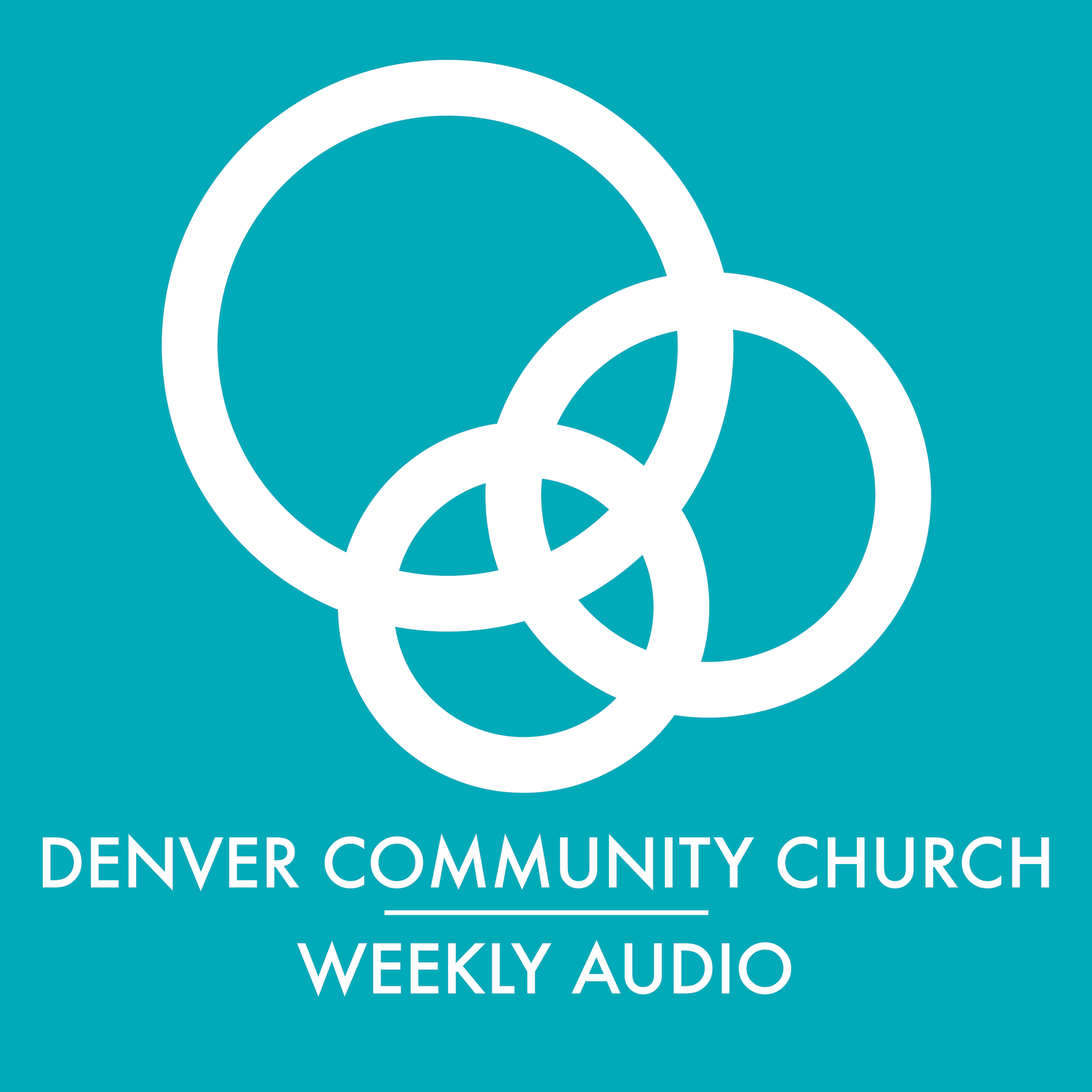Episodes

Sunday Dec 27, 2009

Sunday Dec 20, 2009
December 20, 2009: Born to Die – Michael Hidalgo
Sunday Dec 20, 2009
Sunday Dec 20, 2009
So often the story of The Magi (Three Wisemen, Three Kings) … is told around the idea of three men from the east, presumably occupying some place of power, wealth, and influence showing up and giving gifts to Jesus. Many point to this story as an act of worship, which it seemingly was, but there just might be more the story.
Here we have an evil King (Herod), a newborn child who poses a threat (Jesus), and evil empire (Rome). This already sounds like a good story. Beyond this there are details in Matthew 2 about Egypt, the massacre of children, and a King who dies. It still sounds like a good story, but like one that has been told already. Another story with and evil King (Pharaoh), a newborn child who poses a threat (Moses), and an evil empire (Egypt).
Matthew skillfully employs specific words in his telling of Jesus’ birth and the visit of the Magi that bring the reader back to the events of the Exodus. In doing this he creates a political situation that brings to the forefront the words of Jesus’ mother, “He has brought down rulers from their thrones, but has lifted up the humble” (Luke 1.52).
The Magi, with their message, “Where is the one who was born king of the Jews?” declare that this is indeed a great story, one that deserves retelling – for in it there is liberation for all who are in slavery. However, there is one detail about the Magi that tips the hand of the story. They bring myrhh. Myrhh had a primary purpose – it was used in the embalming process. The Magi bring something that is used for death in celebration of birth.
This was not going to be a normal kind of revolution. This is one in which the new king says, “I will die for you.”

Sunday Dec 13, 2009

Sunday Dec 06, 2009
December 6, 2009: Here Come the Gypsies – Michael Hidalgo
Sunday Dec 06, 2009
Sunday Dec 06, 2009
There are people in this world that most want to associate from. Likewise there are the people in this world that many people want to disassociate from. In 1st Century Palestine the latter group were the shepherds. Philo spoke of them with disdain. The Babylonian Talmud speaks of their uncleanliness – hence inability to stand before God.
Yet, this is the group of people that first learn of the good news of Jesus’ birth. This is not insignificant. This is actually amazing. The reality is that the shepherds are the first evangelizers … the first to take the good news of Jesus into the surrounding towns. They were called thieves and brigands yet they go and tell the people what they have heard, and they end up praising God for it.
Typically when a gospel of a Caesar was pronounced there was a massive festival and tons of VIP parties – for the wealthy and the elite. The only reason it was announced to everyone is because Caesar demanded tribute – which was a tax. Caesar’s gospel was about him getting rich. Jesus’ gospel was about others having hope. Caesar took. Jesus gave.

Sunday Nov 29, 2009
November 29, 2009: Worse Than a Bastard – Michael Hidalgo
Sunday Nov 29, 2009
Sunday Nov 29, 2009
When we look at the Nativity Scene, it seems so perfect. Mary looks great. Joseph looks like a proud Papa. Jesus, although presumably only a few hours old, even seems to have a little smile on his pudgy baby face (he also may and may not include) a halo. It is the perfect story. Mom, Dad, and a baby – why not make this beautiful?
What we forget is that they were in a place for animals, and Jesus was in a place where those animals ate and probably slobbered. And the reason Joseph and Mary were alone? Because it seems that their extended family did not even want them around … they did not even want them to stay in the guest room in their own home. So they, as a new family, are relegated to animals. And this makes sense … Mary is pregnant, and no one knows who the father is. Jesus, was a mamzer, a child who was worse than a bastard … for he was represented what was a threat to God’s people.
This is something that followed Jesus the rest of his life (John 8). Suspicion, doubt, and even name calling directed toward him. Jesus birth was a time of joy, but also a time of pain and probably doubt. For his mother, was a woman who was to have her soul pierced as she knew her son, would continually have to endure a reputation that was simply untrue. But in this, we find something beautiful … a God who became something worse than a bastard. To help us, bastards ourselves.

Sunday Nov 22, 2009
November 22, 2009: Heaping Coals – Michael Hidalgo
Sunday Nov 22, 2009
Sunday Nov 22, 2009
Kindness is a term sometimes reserved for little things like a smile, a card, a flower picked for a special someone, or helping someone out. All of these things move toward a proper understanding of kindness, however there is more there than just friendliness. Chrestotes (Gk. Kindness) was an inscription that was used for as a title for honor among rulers and important public figures.
It is interesting to note that when Jesus called people to follow him he invited them to take his yoke upon them. The yoke that he described as chrestotes; if this is the yoke we are called to take onto ourselves. Which may be why when Jesus calls us to love others in Luke 6 he appeals to this by describing God as one who is “kind (chrestotes) to the ungrateful and the wicked.” In our kindness we never know what effect we have on someone else. We may heap burning coals on their head – which does not mean to get even with them – for coals were symbols of purification. It means that through our kindness they may meet the source of our kindness.

Sunday Nov 15, 2009
November 15, 2009: The Mother God – Michael Hidalgo
Sunday Nov 15, 2009
Sunday Nov 15, 2009
Each time the word compassion is used in the Gospels it is always accompanied by action … and really it has to be. The Greek word for compassion speaks of the deepest place of the emotions. Compassion is when that “seat” of the emotions is disturbed. If it is disturbed, something has to be done.
What is fascinating about the Greek word splanchna and the Hebrew word for compassion rechum is that they both were also used to speak of the womb. The picture of the deepest place of the emotions, and the deep seeded feelings of a person connect to the womb of a mother.
When we are moved inside of us on behalf of someone else, we become like a mother. A mother who when she sees her child in pain or in suffering only wants to comfort her child because the child is a part of her. When we see suffering and are filled with compassion and moved to act it is because we see the other as someone who is like us. When we are moved inside the comfort others we are like a mother … and also like God herself.

Sunday Nov 08, 2009
November 8, 2009: Image Bearing – Dave Neuhausel
Sunday Nov 08, 2009
Sunday Nov 08, 2009
If we are freed from the violence of our culture, and if we are able to live in the Truth of who God has called us to be, then we as a people are then able to live true lives. We do not need to lie anymore … about who we are or about who we believe our brothers and sisters to be. We are able to be open with who we are for we are all continuing to become more like our Creator.
In this new community of Christ our identity is found fully in him. Therefore there is no longer Democrat of Republican, American or Iranian, rich or poor … we are left only with a picture of Christ who is all and is in all. If Christ is in everything, then we must radically rethink “all” or everything that we come into contact with. This means that what Paul is speaking of cannot be merely personal, but has effect throughout the entire world for all people. This means that the Church is a part of the new humanity that God is preparing for a new Creation.

Sunday Nov 01, 2009
November 1, 2009: Language and Violence – Michael Hidalgo
Sunday Nov 01, 2009
Sunday Nov 01, 2009
We have reduced human beings to statistics, commodities, objects removing the truest identity of any person, and that is Image Bearers. This is not a call to be polite, to be passive, or to be the kind of people who simply choose the easiest way. This is a call to remove ourselves from the violence that our culture does to us everyday.
This is not always punching somebody in the face, but it is speaking of them as something other than who they really are (slander is to characterize people as something they are not … and slander is language that grows out of anger, rage, and malice). Many would wonder where the idea of violence is in our culture … maybe it is all around us, and maybe we are in it.
We do not recognize that we often are so saturated in our culture that we no longer hear or see the violence that is all around us. But it is here. We are an angry culture precisely because we have submitted ourselves to the social-political-corporate mentality of bigger, stronger, faster, more productive … we have begun to align ourselves in the most subtle ways within this world. As such we have learned to cover over who we really are.
We need to understand who we are called to become we need to look beyond the anxiety that our culture creates in us. When we do we will find fear, beneath that we will find hurt and beneath the hurt will be guilt. This guilt produces rage and hatred which comes out of our own frustrated desire to be who we were created to be, and that is people who are dearly loved. In every feeling, look deeply. Explore without ceasing. At the bottom there is love, which is who God is, and we are made in his image.

Sunday Oct 25, 2009
October 25, 2009: God and Violence – Michael Hidalgo
Sunday Oct 25, 2009
Sunday Oct 25, 2009
Exploring the wrath of God. Let’s be honest, the wrath, anger, and fury of God is just not popular anymore. But why? It is clearly a part of who God is, but how can a God who is “love” do such things to his kids?
If God did not get angry, I think we would have to wonder how passionate his love was in the first place. After all what is the right response to reversing and perverting the beautiful creation that he has put forth? God’s wrath can be seen in the brokenness, dehumanization and barrenness that idolatry and sexuality produces.
For those who have been brutalized, exploited, and oppressed who do they have to go to? Who will hear their cries? When we consider God’s wrath in light of the injustice that we see all around us it suddenly makes sense.

